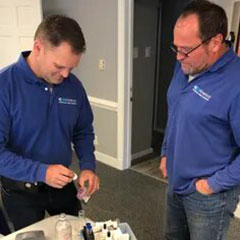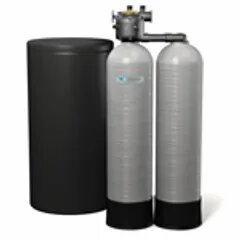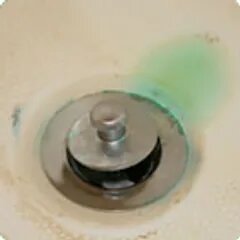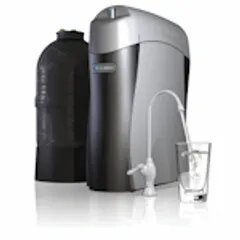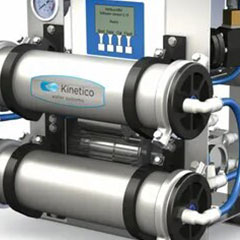How Regular Water Testing Ensures Safe Drinking Water for Your Family
You pour a glass of tap water without thinking twice. It’s clear, cold, and seems fine—so it must be safe, right? Unfortunately, that’s not always the case. According to the CDC, contaminants like lead, nitrate, and harmful bacteria can exist in drinking water with no visible signs. Families relying on well water, aging pipes, or outdated water treatment systems should be especially cautious. Strange odor, cloudiness, or unexpected health issues are often warning signs. In this article, we’ll explain why water testing matters, what professionals look for, and how the right water filtration system can protect your home.
What Regular Water Testing Can Reveal
Contaminants You Can’t See
Even if your water looks clean, it may still harbor dangerous microorganisms, heavy metals, and sediment. Professional water testing services evaluate a broad spectrum of contaminants—from arsenic, chromium, and copper to microplastics and industrial waste. After flooding or nearby construction, searching for well testing near me becomes urgent. Common culprits include hydrogen sulfide (causing a rotten egg smell), high total dissolved solids, and excess fluoride or chlorine.
Why You Shouldn’t Wait
Contaminants like pfas testing compounds or sulfate are often invisible. Without a routine drinking water test or home water test, you’re guessing. Symptoms like dry skin, gastrointestinal problems, or fatigue can be caused by contaminated water. Children are especially vulnerable to exposure from lead or arsenic, which can affect development. That’s why it’s critical to regularly test your water using a professional water testing lab.
How Often Should You Test Your Water?
Know Your Source, Know Your Schedule
If you use well water, annual water tests are the minimum recommendation. But even those on municipal water utility systems shouldn’t assume safety. City water test issues can arise from old soil-buried pipes or external pollution. Testing should also occur after moving, during unusual weather, or if the water’s taste, turbidity, or color changes.
What to Expect During Professional Water Testing
Not Just a Test Strip
Professionals conduct thorough water sampling from your kitchen, shower, bathroom, and sometimes the outdoor hose. These samples are sent to a certified laboratory for advanced evaluation of contaminants using tools like tds tester, ph tester for water, and absorption techniques.
Tested for What?
They test for everything from bacteria, magnesium, and manganese to charcoal content, particulates, and valve issues. Techniques like adsorption, ion exchange, ultrafiltration, and reverse osmosis ensure detailed accuracy. It’s far more complete than anything an at-home strip or pitcher filter can offer.
Why Filtration Works Best When Based on Testing
No One-Size-Fits-All Solution
Buying a generic water purifier for home without knowing the actual problem is like taking medicine without a diagnosis. If your water contains high ph, chloride, or salt content, you’ll need a system that addresses those specifically—like osmosis or carbon filtering.
Tailored Technology for True Results
From countertop systems and ceramic water filter setups to express water and ultraviolet units, solutions must match the problem. Filters using activated carbon, coconut husk, or redox reactions are highly effective but only if used for the right issues. Get a tap score or My Tap Score to understand your home’s unique risks.
The Hidden Costs of Skipping Water Testing
More Than Just Health Concerns
Delaying testing may save time today but cost thousands later. Hard water rich in mineral, iron, sand, or metal content can damage your refrigerator, washing machine, toilet, and water heating system. It can also stain laundry, ruin kitchen appliances, and clog your pump or drainage systems.
Home and Health Protection
Contaminated water is a danger to your family and your investment. Whether from engineer-related infrastructure issues or environmental shifts like surface water pollution or acid rain, regular testing and contaminant removal is essential.
After the Results: Next Steps
Peace of Mind or a Plan
If your test results show your water is clean—great. If not, professionals will offer tailored solutions, whether it’s a check valve repair, upgraded treatment system, or a whole-house home water filtration system.
Choosing the Right System
Results may call for a drinking water system like distillation, microfiltration, or semipermeable membrane reverse osmosis. Understanding what’s in your water lets you install the correct solution—no wasted money or false security from ineffective filters.
Don’t Wait—Test Your Water Today
At Advanced Water Systems – Kinetico Richmond, we don’t believe in guessing. We offer free water test options, complete water analysis, and custom systems built to address real problems. Whether it’s calcium, nickel, sulfur, or cadmium, our systems are designed to target the issue precisely. Get your water tested today.
With tools like water hardness test, pfas testing, and support from NSF International, we deliver better drinking water quality for families in the City of Richmond and surrounding areas. Contact us for a detailed account review and start protecting your family with clean, purified water.
Conclusion: Clear Water, Confident Living
Clean water is essential—but it’s not a guarantee. With contaminants like bacteria, lead, wastewater, and hydrogen peroxide lurking in even the clearest tap, regular water quality testing is the only way to know for sure. Testing is not just prevention—it’s empowerment. Don’t rely on luck or appearances. Schedule your test and invest in safety with trusted professionals at Advanced Water Systems – Kinetico Richmond.
FAQs
1. How often should I get my home’s water tested?
At least once a year for private wells, or immediately if there’s a change in taste, smell, or color.
2. Can water look clean but still be unsafe?
Yes, many harmful contaminants have no taste, color, or odor.
3. Do I need water filtration if my water is tested regularly?
Yes, filtration works best when it’s tailored to specific issues found during professional testing.

